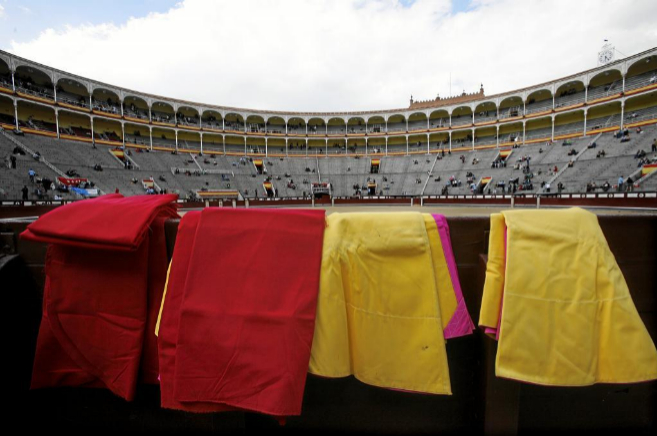It is called the fight capote and is made of bright colored fabric that bullfighters use during the fight. But why is it pink and yellow?
In the knightly festivities of the Middle Ages, the cloak of the nobleman’s usual wardrobe was used as an instrument to circumvent the bull’s onslaught. Later, in the sixteenth and seventeenth centuries, it was established that the clothing layer was the common tool of the peons who helped the knights. Already at that time, there was the expression of “throwing someone’s cloak” when helping a partner in a situation of distress. However, the colors used had nothing to do with the current ones: the layers of the people of the town were brown or dyed dark.
With the evolution of bullfighting, the bullfighting cape gradually became detached from that of dressing, although it retained its shape. In fact, today the capes are still designed with hood, neck and wide flight.

The current color of the beam is pink or fuchsia, while the lining or back is usually yellow, although some bullfighters, by superstition, have retaken the old tradition of using dark tones, such as blue or green.
Traditionally, pink is associated with good luck and yellow, with bad luck.
Both colors dye the cloak of the bullfighters, as a dichotomy inherent in the world of the bull: luck and misfortune, triumph and failure, sun and shadow, life and death.
To this reason, an economic factor is added: formerly, bright colors such as pink were the most difficult to obtain and, therefore, the most expensive. This choice (the pink cape) reminded the bullfighter’s class and nobility.
During your visit to Las Ventas and of course in our gift shop, you can see, touch and buy authentic bullfighting capes for children and adults.

